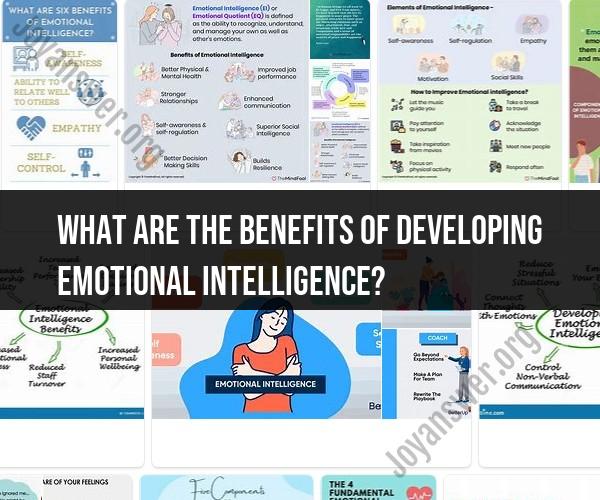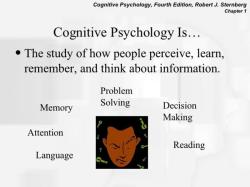What are the benefits of developing emotional intelligence?
Developing emotional intelligence (EQ) can have a wide range of personal, professional, and social benefits. Here are some key advantages:
Improved Relationships: Emotional intelligence enhances your ability to understand and connect with others on an emotional level. This can lead to stronger and more harmonious relationships with family, friends, colleagues, and romantic partners.
Effective Communication: High EQ individuals are better at expressing themselves clearly and empathetically. They also listen actively and understand non-verbal cues, which leads to more effective and meaningful communication.
Conflict Resolution: EQ enables you to manage conflicts and disagreements more constructively. You can remain calm under pressure, see issues from different perspectives, and work toward mutually satisfactory solutions.
Leadership Skills: Effective leaders often have high emotional intelligence. They can inspire and motivate their teams, provide constructive feedback, and navigate complex social dynamics.
Stress Management: Developing EQ helps you handle stress more effectively. You can recognize your stress triggers, implement relaxation techniques, and maintain a balanced perspective during challenging times.
Enhanced Decision-Making: Emotional intelligence aids in decision-making by allowing you to consider emotions alongside logic. You can evaluate situations with greater empathy and understand the potential emotional impact of your choices.
Increased Empathy: EQ fosters empathy, which is the ability to understand and share the feelings of others. This skill promotes kindness, compassion, and a deeper understanding of diverse perspectives.
Better Mental Health: Improved emotional intelligence is associated with greater emotional well-being. It can reduce symptoms of anxiety and depression, enhance self-esteem, and lead to a more positive outlook on life.
Greater Resilience: High EQ individuals are often more resilient in the face of adversity. They can bounce back from setbacks, adapt to change, and maintain a sense of optimism.
Positive Influence: People with strong emotional intelligence can positively influence the emotions and behaviors of those around them. They are effective role models and can inspire others to be more emotionally aware and responsive.
Increased Self-Awareness: EQ enhances self-awareness, which is crucial for personal growth and development. You can better understand your strengths, weaknesses, values, and goals.
Enhanced Problem-Solving: EQ helps you approach problems with a more open and creative mindset. You can explore multiple solutions and adapt to changing circumstances.
Professional Success: Many employers value emotional intelligence in the workplace. It can lead to career advancement, effective teamwork, and improved job performance.
Healthy Relationships: Developing emotional intelligence contributes to healthier, more fulfilling relationships. It can lead to more satisfying friendships and romantic partnerships.
Improved Parenting: EQ can make you a more empathetic and understanding parent. It aids in communication with children, helping you guide them through challenges and emotions.
In summary, cultivating emotional intelligence can have a profound impact on various aspects of your life, from your personal relationships to your career success and overall well-being. It's a valuable skill set that can be developed and refined over time, leading to a richer and more fulfilling life.













